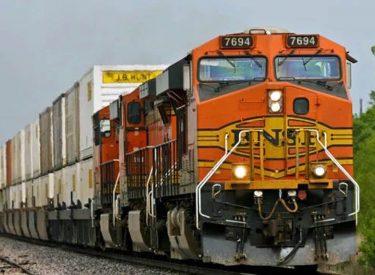Judge deems Oklahoma train crossing law unconstitutional
Mike Seals - December 1, 2020 6:28 pm

OKLAHOMA CITY (AP) — A federal judge in Oklahoma has ruled in favor of a railroad that challenged a state law that bans stopped trains from blocking streets for more than 10 minutes.
BNSF Railway Co. sued Oklahoma last year after police officers in Edmond and Davis issued citations over blocked streets. The lawsuit listed the Oklahoma Corporation Commission and the cities of Edmond and Davis as defendants, The Oklahoman reported.
U.S. District Judge Charles B. Goodwin on Monday found that the 2019 law is unconstitutional because it does not align with a federal law, the Interstate Commerce Commission Termination Act. He wrote that the statute “intrudes on the territory reserved to the ICCTA.”
In defense of the state law, state Attorney General Mike Hunter and his assistants cited instances when blocked crossings caused safety issues.
But the Texas-based railroad said that U.S. law governing rail carriers supersedes any state law.
The judge said “blocked train crossings indisputably have safety implications.” But he also wrote that state or local government can address railroad crossing issues in a way “that does not run afoul of federal law.”
There were exceptions to the law, including stops for accidents, derailment, a mechanical failure, a bridge washout or a storm. Railroads could be fined up to $1,000 for being in violation of the rule.
The judge granted a preliminary injunction against enforcement of the law in October of 2019.



